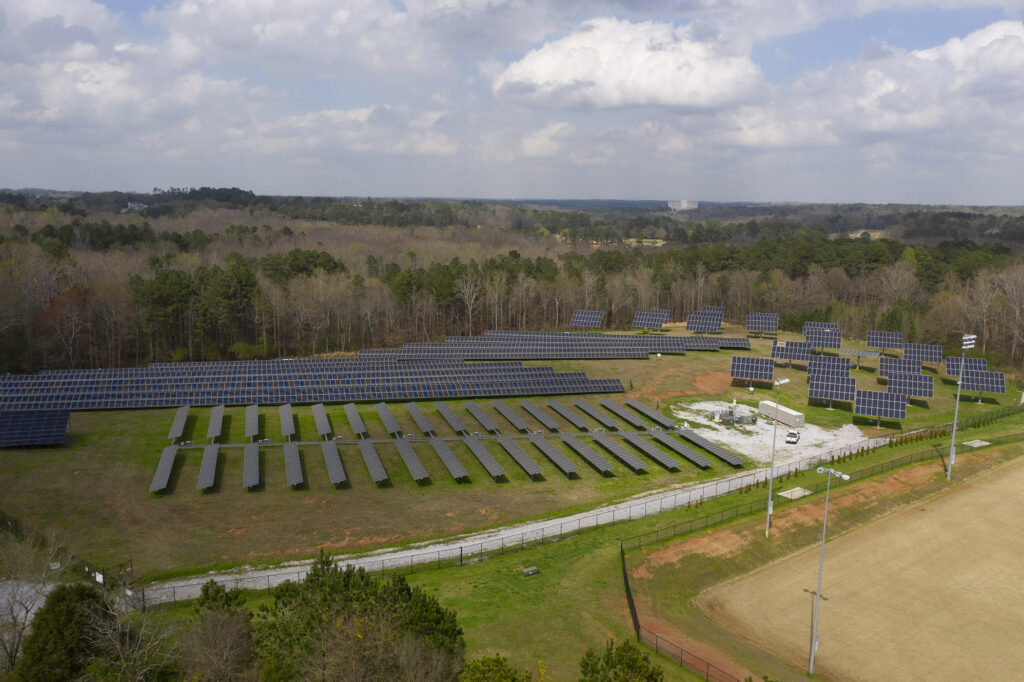The University of Georgia is committed to operational sustainability and energy conservation. With unprecedented increases in energy costs, these efforts are more critical than ever.
Despite adding over 500,000 square feet of conditioned space, including I-STEM Research Building 1, the Butts-Mehre Heritage Hall Expansion and the Porcelain and Decorative Arts Museum, Discovery and Inspiration Garden, overall campus energy consumption increased only by a combined 3% between fiscal year 2021 and fiscal year 2022.
Even with extensive conservation efforts, energy costs for the university (including electricity, natural gas, water and sewer) increased by 37% during that same period. They’re expected to jump an additional 51% in fiscal year 2023.
UGA is implementing several strategies to combat rising costs and increase efficiencies around campus:
- A six-phase Central Steam Plant modernization will include newer, high-performing steam boilers with heat recovery energy-saving features and modern controls. The Central Steam Plant keeps the university’s critical steam utility operating efficiently, reliably and safely.
- Chilled water utility centralization will replace old, inefficient chillers with large, high-efficiency ones located in centralized district energy plants. Those energy plants will also undergo a third-party, dynamic optimization to monitor and adjust operations continuously based on real-time conditions.
- An in-house Facilities Management Division (FMD) commissioning team has been tasked with optimizing building performance across campus.
- LED lighting and occupancy sensing controls are being retrofitted across campus.
- Through a partnership with Georgia Power, UGA earns more than 1,600 megawatt-hours of renewable energy credits by hosting the 1-megawatt solar array on South Milledge Avenue. That’s enough to power nearly 80% of UGA’s electric bus fleet.
- Georgia Power is also assisting UGA with planning and implementing other cost-effective electric transportation strategies.
Individual efforts from the campus community also play a major role in UGA’s conservation and sustainability initiatives.
“These unprecedented energy prices make our individual efforts to conserve now that much more beneficial,” said Tyler Alsen, director of the Office of Utility and Energy Management within FMD. “Energy saved today is substantially more valuable than in years past. Collectively, we have an opportunity to make a significant difference on campus.”
Here are a few ways individuals can help:
- Look for opportunities to reduce electricity use in workspaces, especially between 1 p.m. and 6 p.m. when electricity rates are at their peak.
- Consider turning off lighting when leaving for longer than 15 minutes or when sufficient daylight is available.
- Adjust space thermostat cooling setpoints up to 77°F or higher wherever possible. Those who are unable to adjust them can contact FMD.
- Turn off electronic equipment, such as computers, monitors, printers, copy machines, lab instruments and other equipment, when not in use.
FMD is doing its part by turning off unneeded classroom lighting, turning off individual AC units in unused spaces and shutting down hot water pumps and equipment where feasible. If an FMD staff member attempts to turn off lighting or AC equipment in areas where it needs to remain on, please inform them of the need, and they will gladly accommodate the request.
Reduced energy use on campus also directly results in improved air quality in Georgia and lessened environmental impacts across the state. These focused efforts will support UGA’s continued commitment to conservation and sustainability, especially during extreme weather conditions.
